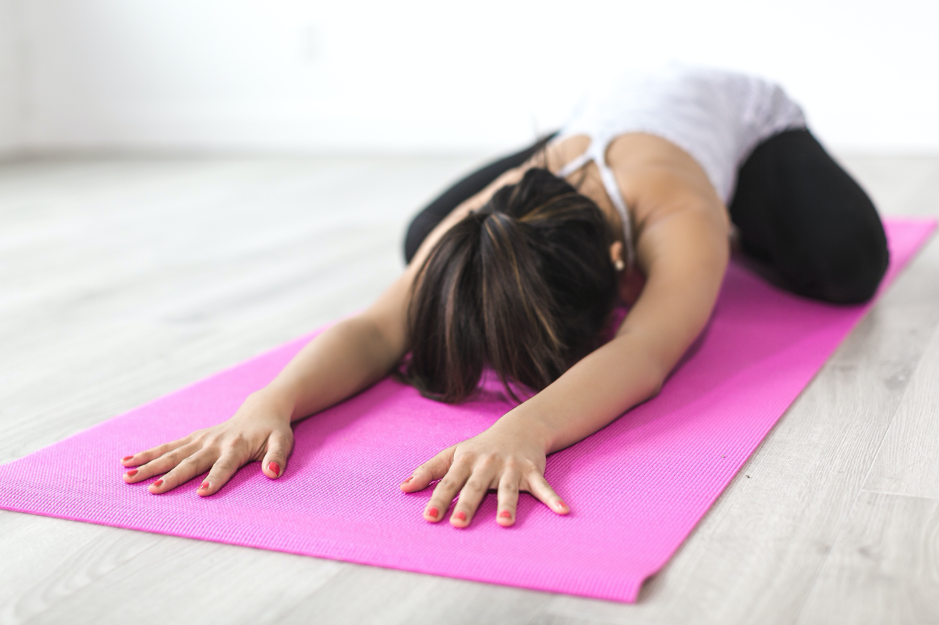I have written on the topic of immunity before. Still, I feel compelled to do it again as the current Corona Virus infection has reached pandemic proportion, and new research and data are emerging daily.
We receive constant updates on vaccines developments, the number of infections and deaths, government debates about the best strategies for containment and endless reminders of the symptoms and actions to take to prevent and cope with the virus.
We are constantly reminded that the most effective way to avoid infections is by washing our hands with soap ( often and thoroughly), avoid touching our face ( where the virus can gain access to our mucosal cavities and enter our body ) and social distancing and isolation. This is valid and standard advice applicable to any viral and bacterial infections.
What has been mostly missing from big media is information on how we can support our natural immunity. There is no cure for this virus; however, we can influence the way our immune system responds to it and as a result, possibly alleviate its presenting symptoms and support a quicker recovery.
I would like to highlight the importance of recognising and remembering that the level of impact of this virus, is different amongst the population. Currently we know that the elderly and people with pre-existing health issues are at risk of severe health consequences. These individuals should do their best to avoid their exposure to infection by immediately considering social distancing and discuss the course of actions with their medical team. You can find more information on who is considered at higher risk here: https://www.gov.uk/government/publications/covid-19-guidance-on-social-distancing-and-for-vulnerable-people/guidance-on-social-distancing-for-everyone-in-the-uk-and-protecting-older-people-and-vulnerable-adults
The constant bombardment from the media with the statistic of infections and death, criticisms to the government interventions, stories about European isolation and discrimination, doomed opinions from experts and far too many non-experts … pointless polemics …are enough to drive a sense of worrying and anxiety even in the most relaxed and zen-minded of us.
We all understand from a logical perspective that, worrying does not change the situation…and, in this current situation, worrying is not only pointless but plainly counter-productive for our health because of its effects at the biological level.
There is a whole relative new science, psychoneuroimmunology (PNI) which studies the complex communication between the brain and the immune system and their implications for health.
However, there has been minimal discussion about the effects that stress, fear and anxiety can have on the immune system. The psychological stress that many amongst us are experiencing at the moment induces the same release of chemicals in our body that other type of stressors would.
Negative thoughts and worries about what has happened and what might happen in the future produce a physical change in the body. I recond that it is essential to be aware of this, to understand how this happens and to adopt behaviours which can modify these adverse biological outcomes.
In straightforward terms:
1) You worry- feel stressed, anxious, powerless, fearful …
2) In response, your brain releases the hormones CRH (corticotropin-releasing hormone), ACTH ( adrenocorticotropin hormone ) and ß-endorphin
3) These hormones travel to your adrenal glands and initiate the release of cortisol and catecholamines ( adrenaline and noradrenaline).
This “communication route”, called the HPA axis ( Hypothalamus- pituitary-adrenal axis ), produces the “fight or flight” response.
How the cascade of hormones involved in this axis can affect the immune response :
Cortisol and the catecholamines can directly suppress the actions of some immune cells, ( T lymphocytes and macrophages) which produce and release cytokines ( chemical messengers ) such as interleukin -2, interferon-Y, interleukin 12( and many more). These molecules are pro-inflammatory, and some of them pyrogenic ( which means they induce a fever) and are needed to fight viruses. Elevated levels of cortisol, noradrenaline and adrenalin, suppress the production of these pro-inflammatory cytokines and the immune responses to viruses are compromised.
What can you do to decrease your worrying thoughts and maintain a calm and rational mindset in the current situation?

To help you stay calm and rational in this current situation, consider including in your daily routines, some rituals or activities which enable your nervous system to have a break and reset. Yoga, breathing exercises and medication are effective and proven methods to recalibrate your stress response. I use an online platform called Gaia https://www.gaia.com to practice yoga at home, and I find the following apps helpful to maintain my meditation practice: Headspace https://www.headspace.com and Insight Timer https://insighttimer.com.

A simple exercise such as deep belly breathing https://www.guysandstthomas.nhs.uk/resources/patient-information/therapies/abdominal-breathing.pdf for few minutes can reduce your stress response and bring you back into a parasympathetic response (the rest and digest mode of the nervous system vs the fight or flight mode). 1
You can use these tools whenever you need to check out of your head during the day, but I also recommend that you make them part of your day in a more structured way. Add them to your routines, perhaps the easiest way to have them to follow a well-established habit such as brushing your teeth in the am and pm. All you need is a few minutes per day to reap some benefits.

Another tool that I found extremely helpful in keeping in the zen area is a daily gratitude practice. I would recommend that in the evening you close your day by listing a few events, small gestures, acts of kindness that happened in your day. Gratitude is the mother of all good feelings, and God knows we need them now, and we need to remind our self of the kindness and beauty that is still present in our life. 2,3

From a nutrients point of view, I found that L-theanine is a helpful supplement to relax. If taken in the evening to facilitate relaxation before going to beds, L-theanine and lemon balm combined are even more useful. L-theanine is an amino acid that is found in high concentration in green tea and can modulate inhibitory neurotransmitters, selective serotonin, and dopamine (your happy and calming hormones) to bring about anxiolytic (anxiety reducing) and calming effects. L-theanine can also improve cognition and attention, perhaps due to changes in alpha brain wave activity. Research shows that an effective dosage is between 200 to 400mg per day. 4

Another nutrient which might be used to decrease anxiety is magnesium. Research has demonstrated that magnesium attenuates the psychological response to stress by modulating the release of ACTH ( in the brain) and cortisol ( from the adrenal glands). It has a relaxing effect on the musculoskeletal system as well and improves cardiovascular function by reducing high blood pressure which goes hand in hand with anxiety and elevated stress. 5,6,7
You can add some powdered magnesium to a cup of well-stewed chamomile tea for even more calming and soothing feelings. Avoid magnesium oxide and magnesium sulfate formulas as they are less bioavailable. Choose a bisglycinate or mixed formula. I use a variety of magnesium supplements ( not at the same time ): High Potency Magnesium by Viridian ( 1 x day ); MAG365, natural flavouring formula ( 1 heaped teaspoon mixed in hot water or chamomile) or a complete formula called MegaMag Calmeze which includes amino acids ( L glutamine, L theanine and L taurine ), vitamins B1, B2, B3, B5 and B6and vitamin C, nutrients which have been proved to help modulating the stress response. Be aware that if you have impaired kidneys function, you should not take more than 350mg of magnesium per day. 8,9,10
From a general nutritional perspective maintaining balanced blood sugar levels is essential for having stable moods. Constant spikes and drops of glucose in the blood due to a diet rich in refined carbohydrates ( and perhaps also under-optimal in terms of proteins, fats and essential nutrients) lead to irritability, cravings, dips in energy and initiate a stress response.
Adrenaline and cortisol are some of the hormones that help maintain blood sugar levels. They, along with glucagon are called “stress” or “gluco-counter-regulatory” hormones – which means they make the blood sugar rise. Elevated cortisol secretions, as previously explained, will interfere with the immune response and long term high amount of glucose in the blood leads to insulin resistance, the step which precedes the development of diabetes type 2.
I have explained in detail how to maintain a healthy blood sugar level by implementing a low glycemic diet in my previous blogs. Click here for explanations and practical advice.
I hope you have found some of this information helpful. Please do leave comments and questions on the dialogue box below this email. I will make it my priority to answer.
Finally, I just wanted to conclude this blog by offering you a song which I find soothing and deeply relaxing for the body and the mind. I first heard it in one of my yoga classes a month ago, and it has become my regular soundtrack while I get ready to go to sleep. I hope you will enjoy it as much as I do.
“In dreams “by Jay Jagdeesh
Wishing you the best of health and vitality

References:
- Michaela C. Pascoe, David R. Thompson, Chantal F. Ski et al. (2017) Yoga, mindfulness-based stress reduction and stress-related physiological measures: A meta-analysis, Psychoneuroendocrinology, Volume 86, Pages 152-168, ISSN 0306-4530, https://doi.org/10.1016/j.psyneuen.2017.08.008.
- William J. Chopik, Nicky J. Newton, Lindsay H. Ryan, Todd B. Kashdan & Aaron J. Jarden (2019) Gratitude across the life span: Age differences and links to subjective well-being.J Posit Psychol. 2019;14(3):292-302. doi: 10.1080/17439760.2017.1414296. Epub 2017 Dec 15.
- Hanna Heckendorf, Dirk Lehr, David Daniel Ebert, Henning Freund (2019 ) Efficacy of an internet and app-based gratitude intervention in reducing repetitive negative thinking and mechanisms of change in the intervention’s effect on anxiety and depression: Results from a randomised controlled trial. Behav Res Ther. 2019 Aug;119:103415. doi:10.1016/j.brat.2019.103415. Epub 2019 Jun 8.
- Williams JL, et al. (2020) The Effects of Green Tea Amino Acid L-Theanine Consumption on the Ability to Manage Stress and Anxiety Levels: A Systematic Review. Plant Foods Hum Nutr. 2020 Mar;75(1):12-23. doi: 10.1007/s11130-019-00771-5.
- Boyle, N. B., Lawton, C., & Dye, L. (2017). The Effects of Magnesium Supplementation on Subjective Anxiety and Stress-A Systematic Review. Nutrients, 9(5), 429. https://doi.org/10.3390/nu9050429
- Marques, BCAA, Klein, MRST, da Cunha, M.R. et al.(2020) Effects of Oral Magnesium Supplementation on Vascular Function: A Systematic Review and Meta-analysis of Randomized Controlled Trials. High Blood Press Cardiovasc Prev27, 19–28. https://doi.org/10.1007/s40292-019-00355-z
- Darooghegi Mofrad, Manije et al. (2018 ) Effect of magnesium supplementation on endothelial function: A systematic review and meta-analysis of randomised controlled trials. Atherosclerosis, Volume 273, 98 – 105
- https://ods.od.nih.gov/factsheets/Magnesium-HealthProfessional/
- https://lpi.oregonstate.edu/mic/minerals/magnesium
- https://www.ncbi.nlm.nih.gov/books/NBK538239/





Please read this again, as it is full of sensible advice. The meditation song is one I shall go to over and over again to alleviate stress and take my mind off the present situation.
Do all you can to help yourself, through nutrition, supplements and keeping safe. There are online yoga practices you can do at home which will support you both physically and mentally, seek one out or ask your yoga teacher.
Great Blog Monica and supported by excellent references.
Thank you Lorna, online yoga has become my regular practice too. Glad you love the meditation song I shared 🙂 Sending you best wishes and Loe Monica
Fantastic blog – very informative and really helps reading positivity and great advice. During these uncertain times it really helps to alleviate any stress by using the tools Monica has recommended. Loved your recent video as well.
Dear Ariana, thank you for your comment and I am happy you enjoyed the video too. Best wishes and love to you and/or family
Dear Ariana, thank you for your lovely comments. I am happy that you are finding the article and video helpful. Wishing all the best to you and your family x
Thank you Monica for the many good advices, so important but so difficult to keep positive now. Feel already bit better by reading what I could do. Will try some of your website recommendations too. Thank you x
Thank you for your comment Valentina, I am glad the article gave you some relief, let me know which tools are working better for you.
With love Monica